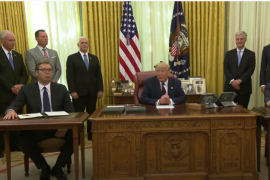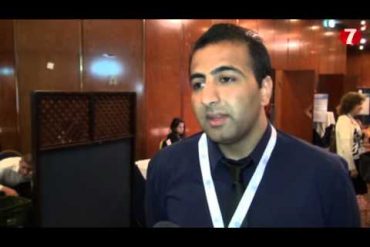An otherwise unproblematic article in the Telegraph by Abbie Cheeseman on Israel’s latest COVID challenges (“Israel threatens fresh lockdown as vaccine front-runner faces delta surge”, Aug. 8) concluded with the following claim:
Israel has come under fire in recent days for offering a booster third dose to the over 60s while many developing countries are struggling to offer initial vaccines to large swathes of their populations.
We tweeted the journalist, asking for a source. She replied and forwarded us an article on recent statements by WHO’s Director-General, Dr Tedros Adhanom Ghebreyesus, regarding the vaccine gap between wealthy nations and poorer ones.
However, though Ghebreyesus did criticise “high income” countries that are considering giving segments of their populations COVID vaccine boosters, arguing that the poorer countries should get vaccines first, his statement did not mention, yet alone single out, Israel. In fact, most of the WHO Director-General’s plea was directed towards the G20, a forum of countries with the largest economies. Israel is not a member of the G20.
Here are the relevant sections of the WHO statement:
The G20 has a vital leadership role to play, as the countries that are the biggest producers, the biggest consumers and the biggest donors of COVID-19 vaccines.
It’s no understatement to say that the course of the pandemic depends on the leadership of the G20 countries.
One month from now, the G20 health ministers will meet, ahead of the G20 summit in October. I call on them to make concrete commitments to support WHO’s global vaccination targets.
So, the Telegraph’s claim that Israel ‘came under fire’ for their booster campaign for over 60s is, at best, extraordinarily misleading.
Moreover, it’s important to note that though Israel is offering boosters to its 1.4 million citizens who are 60 or over, nations with much larger populations, such as the US, UK, Germany, France and Russia, have already started providing boosters to large segments of their populations – including the elderly and those who are immunocompromised – or announced their intention to do so.
But, there’s also another way that the Telegraph’s Israel angle misleads: To say that the 1.4 million booster shots Israel is delivering to their 60+ residents wouldn’t make a dent in the global demand, especially in poorer parts of the world, is a profound understatement. So far, even with COVAX and other international programs to distribute vaccines to the under-developed world, only a fraction of the roughly 11 billion doses WHO said is needed to vaccinate 70% of the world’s population (the threshold needed for herd immunity) have been administered.
Even the recent promise by the G7 (UK, USA, Canada, Japan, Germany, France and Italy, plus the EU) to deliver one billion vaccine doses to countries in need won’t come close to meeting the overall demand.
Though Israel has been one of the most successful countries in terms of vaccinations per capita, in terms of the total quantity of vaccines administered, the country (due to their small population) isn’t even in the top 35. To give you a sense of scale, whilst Israel has administered 11 million plus doses, the US, China and India alone have administered a combined 2.5 billion doses (which accounts for 55% of the total quantity of doses delivered throughout the world).
So, not only is the Telegraph’s specific claim that Israel “has come under fire” for its booster shot roll-out not accurate, but the broader suggestion that Jerusalem’s decisions on COVID vaccine distribution policy impacts the global vaccine gap is similarly unfounded.






So in other words Abbie Cheeseman is guilty of producing FAKE NEWS and getting paid handsomely for it, just so that she can satisfy her own antisemitic views by denigrating Israel. What a disgusting and unprofessional attempt at journalism, she should be fired on the spot.